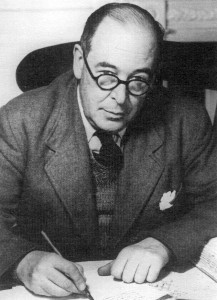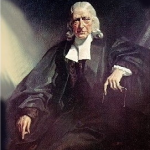Christian Faith: Opinion or Life?
 What if Christianity is not primarily about what you believe but about what you live?
What if Christianity is not primarily about what you believe but about what you live?
What if its not about your opinions but your choices? What if the Final Judgement before God is about how you lived your life, not what religious opinions you espoused — or even what religious experiences you had? What if our actions are more important than our words? What if what God really wants are people of compassion and patience and peace (in fact, a community of people committed to those ideals)? What if the most important expression of our faith is not a Doctrinal Statement signed but a life well lived, under the Lordship of Christ? What if the real evidence of faith is “love, joy, peace, patience, kindness, generosity, faithfulness, gentleness, and self-control” (Galatians 5:22, 23)? What if God wants us to be making this world a better place — and we’ve spent our days hiding in our churches?
What if the real scandal of Christianity is the huge gap that lies between our Biblical and theological knowledge, and the actual lives that we lead from day to day?
These are the questions that the whole Wesleyan tradition raises for me. This is why I am still fascinated by it. The issue the old holiness writers were exploring was this: what would it mean to live a life wholly devoted to God.
The focus was on the life a person lives.
This is why John Wesley often de-emphasized doctrine — even though he obviously thought it was important. This is why he so often spoke against the notion that salvation depended upon having the “right opinions.” Notice the following:
The distinguishing marks of a Methodist are not his opinions of any sort. His assenting to this or that scheme of Religion, his embracing any particular set of notions, his espousing the judgment of one man or of another, are all quite wide of the point. Whosoever therefore imagines, that a Methodist is a man of such or such an opinion, is grossly ignorant of the whole affair; he mistakes the truth totally. We believe indeed, that all Scripture is given by the inspiration of God, and herein we are distinguished from Jews, Turks, and Infidels. We believe the written word of God to be the only and sufficient rule, both of Christian faith and practice; and herein we are fundamentally distinguished from those of the Romish church. We believe Christ to be the eternal, supreme God; and herein we are distinguished from the Socinians and Arians. But as to all opinions which do not strike at the root of Christianity, we think and let think. So that whatsoever they are, whether right or wrong, they are no distinguishing marks of a; Methodist.
— from “The Character of a Methodist”
…orthodoxy, or right opinions, is, at best, but a very slender part of religion, if it can be allowed to be any part of it at all; that neither does religion consist in negatives, in bare harmlessness of any kind; nor merely in externals, in doing good, or using the means of grace, in works of piety (so called) or of charity; that it is nothing short of, or different from, “the mind that was in Christ;” the image of God stamped upon the heart; inward righteousness, attended with the peace of God; and “joy in the Holy Ghost.”
— from “A Plain Account of the People Called Methodists in a Letter to Rev. Mr. Perronet”
Whatsoever the generality of people may think, it is certain that opinion is not religion: No, not right opinion; assent to one, or to ten thousand truths. There is a wide difference between them: Even right opinion is as distant from religion as the east is from the west. Persons may be quite right in their opinions, and yet have no religion at all; and, on the other hand, persons may be truly religious, who hold many wrong opinions. Can any one possibly doubt of this, while there are Romanists in the world? For who can deny, not only that many of them formerly have been truly religious, as Thomas a Kempis, Gregory Lopez, and the Marquis de Renty; but that many of them, even at this day, are real inward Christians And yet what a heap of erroneous opinions do they hold, delivered by tradition from their fathers! Nay, who can doubt of it while there are Calvinists in the world, — assertors of absolute predestination For who will dare to affirm that none of these are truly religious men? Not only many of them in the last century were burning and shining lights, but many of them are now real Christians, loving God and all mankind. And yet what are all the absurd opinions of all the Romanists in the world, compared to that one, that the God of love, the wise, just, merciful Father of the spirits of all flesh, has, from all eternity, fixed an absolute, unchangeable, irresistible, decree, that part of all mankind shall be saved, do what they will; and the rest damned, do what they can!
— Sermon #55 “On the Trinity.”
Of course, we know that he cared a great deal about “right opinions.” He insisted upon orthodox belief. He insisted upon following the Bible — and being a “Bible Christian.” He defended the orthodox beliefs of the Church. Certainly (as many have claimed), Wesley would have been appalled to see (long ago) the way classical liberalism made inroads into the Methodist Church — until finally it became ascendant. But, his point was this: comparatively speaking right opinions matter very little. Without holiness no one will see the Lord (see Hebrews 12:14). Thus, holiness is the central issue. The central issue is how we live not what we think.
 This was also the original purpose of the small groups in the early Methodist revival. They were accountability groups — where members checked in with one another about their spiritual lives. They were like recovery groups — we might say they were sin-recovery groups.
This was also the original purpose of the small groups in the early Methodist revival. They were accountability groups — where members checked in with one another about their spiritual lives. They were like recovery groups — we might say they were sin-recovery groups.
I realize that what I call “the Wesleyan tradition” is not the only segment of the Christian tradition that raises these issues. It is the segment of the Church that raised the issues for me. And, this emphasis on practical, lived-out Christianity may be the explanation why the Methodist tradition is so comparability weak in the area of systematic theology. In Protestantism, the great theologies have emerged from the Reformed and Lutheran traditions. While the Methodists have produced great systematic theologians like Richard Watson, John Miley, William Burt Pope, their ranks are small. Their works have often been overlooked — and not especially honored by many Methodists themselves.
C. S. Lewis made a helpful distinction. He said the difference between Christian theology and the living of the Christian life was similar to the difference between a map and a journey. Lewis speaks of a friend who had a mystical experience in the desert, and then says:
Theology is like a map. Merely learning and thinking about the Christian doctrines, if you stop there, is less real and less exciting than the sort of thing my friend got in the desert. Doctrines are not God: they are only a kind of map. But that map is based on the experience of hundreds of people who really were in touch with God–experiences compared with which many thrills of pious feelings you and I are likely to get on our own are very elementary and very confused. And secondly, if you want to get any further you must use the map.
— from Mere Christianity.
It is a great analogy, I think. The difference between theology and Christian living is like the difference between reading a map and taking a journey. A good map is an excellent resource for taking a journey, but studying the map is not the same thing as taking the journey. A good map may be needed for the journey. But, studying the map (or the science of map making) is not at all the same thing as taking the journey. And, owning a good map is not the same thing as taking the journey either.
And, that means reading a theology book is never a substitute for living the Christian life.
Faith is not right opinion — it is a life rightly lived.














I was raised in a tradition that insisted right belief was of utmost importance. No wonder, then, why so many among us lived lives that were less than holy — to say the least. How grateful I am to be in a tradition that reminds me that right belief is intended to inevitably lead to holy living. This post was so very much a wonderful blessing.
Thanks. I am glad you found it helpful.
Thoughtful post, Craig. Picking up for UM Insight. Thanks!
Thank you.
It seems like you are confusing a necessary assumption (right living) with a sufficient assumption (faith in Christ). I’m not sure the two are validly interchangeable in terms of salvation. Thoughts?
I think it goes further than that. It is partly a matter of what “faith” is. I would say with James that “faith without works is dead”, i.e., not saving faith.
I agree… what we really believe is given evidence by our fruit, how we live our lives. The greater challenge is life together… so as important as individual fruit is concerned, I believe corporate fruit is greater. Thus, the Church needs consistency in both its faith and action. They world will not know that we are Christians by our love in any world changing capacity until we live together giving evidence of the Unity of the Spirit by which we may corporately produce the fruit of the Spirit. Jesus’ prayer in John 17 testifies to this.
I am essentially in agreement. But, the sad thing is that the church is very far from being where it should be in that regard.
Yes, and I believe we need to have this corporate vision held high, not to discourage us because of where we currently are as the Church but to encourage the work of The Holy Spirit in us together to move forward.
To fellowship in Christ is to grow in Christ. http://www.thomaskempis.org
I feel this same tension very strongly, having been raised in a tradition that emphasized correct and precise doctrine and decision-based evangelism above all else. So to find myself ministering in social gospel-type ministry caused me a lot of cognitive dissonance, since “it’s not really ministry unless people are getting saved”. This post is a breath of fresh air, and this line of thinking is one reason I remained within the Wesleyan tradition after leaving the UMC (over personal issues not the current doctrinal churn).
Thanks for stopping by and leaving a comment, Mike.